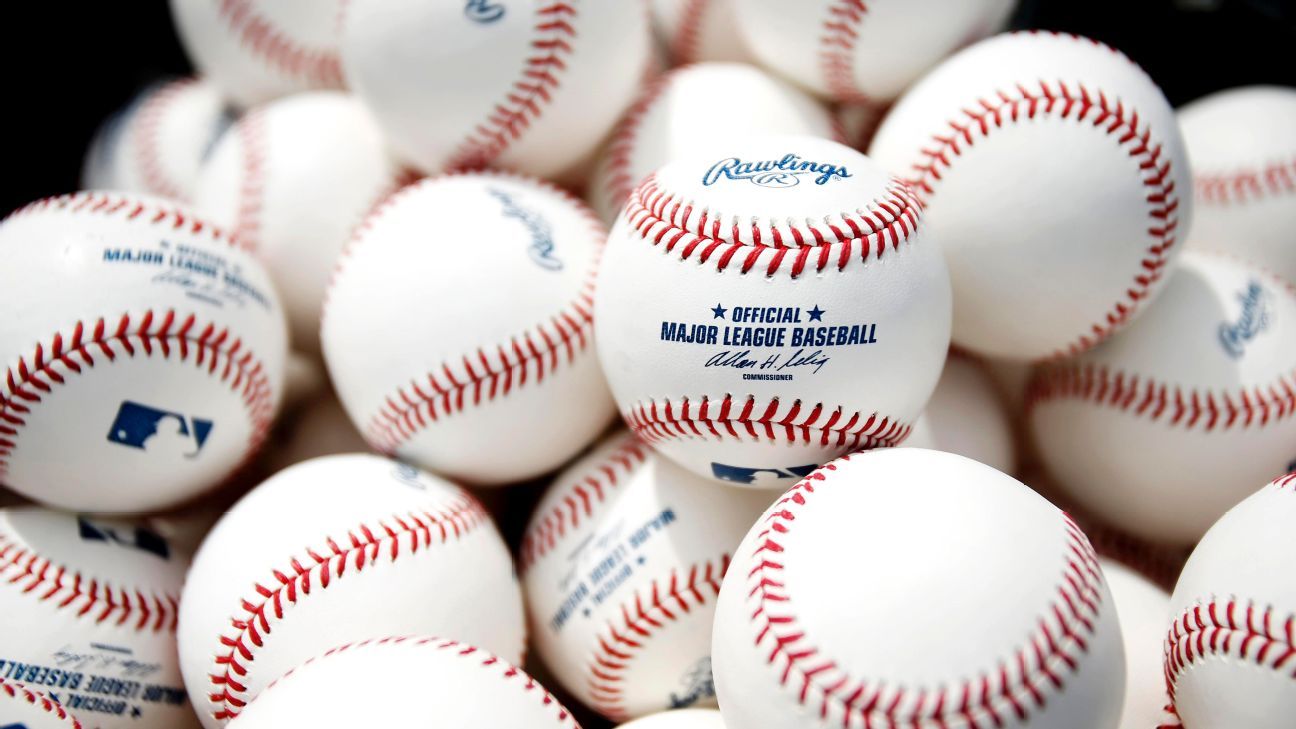Employees of Major League Baseball teams are participating in a massive study that will test up to 10,000 people for coronavirus antibodies and should offer researchers a better sense of how widespread the disease is in major metropolitan areas across the United States, although doctors caution that the data gathered is not expected to hasten the game’s return.
The study, which is being run by Stanford University, USC and the Sports Medicine Research and Testing Laboratory (SMRTL), will use test kits that draw blood via pinprick and offer results within 10 minutes. The test will detect the prevalence of IgM, an antibody produced relatively early in those who have been infected with COVID-19, and IgG, a second form that doctors said lasts long after the infection happens. A positive test would confirm a person did in fact contract coronavirus, even if he or she was asymptomatic.
The goal of the study is to get a better sense of the virus’ true infection rate by utilizing a nationwide sample. The speed with which MLB coordinated logistics and ensured participation from a wide range of people, including players, front-office staff, concession workers and others, made it the right choice for the study, according to doctors running it.
“This is the first study of national scope where we’re going to get a read on a large number of communities throughout the United States to understand how extensive the spread of the virus has been,” said Dr. Jay Bhattacharya, a professor of medicine at Stanford University who will assess the data gathered this week and write a peer-reviewed paper he hopes to publish as early as next week. “This will be the very first of those. Why MLB versus other employers? I’ve reached out to others, but MLB moved by far the fastest. They’ve been enormously cooperative and flexible. We’re trying to set up a scientific study that would normally take years to set up, and it’s going to be a matter of weeks.”
The IgG/IgM antibody tests, which SMRTL secured in mid-March before they were FDA-approved, are not similar to PCR tests that detect active COVID-19 and are needed for those who fear they’re infected with the disease and hospital personnel. The antibody test, which doctors hope will become more prevalent in the coming weeks and for the study can be done by participants at home or at team-run testing sites, is suited for research and epidemiological purposes. Alongside the MLB study, in which 27 of 30 teams expect to participate, Stanford and USC are running antibody-testing programs in two California counties to gather more data.
“These tests are absolutely not getting redirected from any kind of frontline testing programs,” said Dr. Daniel Eichner, the president of SMRTL, who has worked extensively with MLB and other sports leagues on antidoping testing.
The league leapt at the opportunity to participate in the study when approached by Eichner, who partnered with Bhattacharya in hopes that the data can help give politicians a clearer sense on when it might be safe to reopen the country. Because the data in the MLB study will be de-identified and not all players are expected to participate, Eichner said, it would not serve as a proxy for baseball’s ability to return to play.
“MLB did not partner with us for any selfish reason to get their sport back sooner,” Eichner said. “They jumped in for public health policy. That was their intention and their only intention.”
Donors, Bhattacharya said, are funding the study. MLB did not pay to participate in the study, both doctors said, with Eichner adding: “This is going to be unbelievable for public health policy, and sport is giving back. Baseball gets nothing out of this other than to test-drive public health policy.”
Researchers will gather the results of the tests, which have been distributed to individuals throughout the game and already taken by some, on Wednesday and Thursday. The results will be uploaded along with a photograph of the test itself that allows medical personnel to verify the results. The test looks similar to a pregnancy test, with a line indicating positive for antibodies.
The participants also have been asked to take a survey that asks for their sex, age, ZIP code, ethnicity, recent behavior in terms of social activity, contact with COVID-19-positive patients, recent ailments, COVID-19 testing status, pre-existing conditions and whether they smoke, according to a copy of the study protocol obtained by ESPN.
The MLB Players Association is aware of the study and suggested players participate if they want to do so, according to sources. Some teams have offered an antibody test to all their players, whereas others haven’t, sources said.
The MLB and California county studies, Bhattacharya said, “are among the most important studies I’ll ever work on. We’ll have a first look at how extensive COVID is in the United States. When we start to get results like this, it will inform policy in a data-driven way to open the economy up. That includes going back to normal life, including baseball. I’m looking forward to the day I can go back to Fenway Park.”
Bhattacharya said he looks forward to the peer review of his paper, which will assess the quality of the sample and how representative it is for the cities it covers.
“My ambition is to have these kinds of tests going on in every community in a meaningful way,” Bhattacharya said. “MLB is a very important population. It is really important to understand how widespread it is in that community. They’re also forward-facing. They tend to be more in public. It’s not clear the direction the bias goes. It’s not the end of the testing. In my view, it’s the beginning.”

